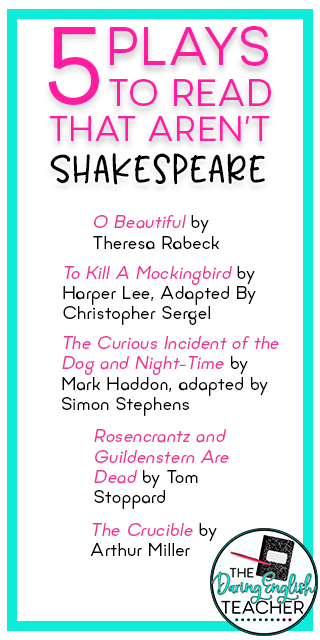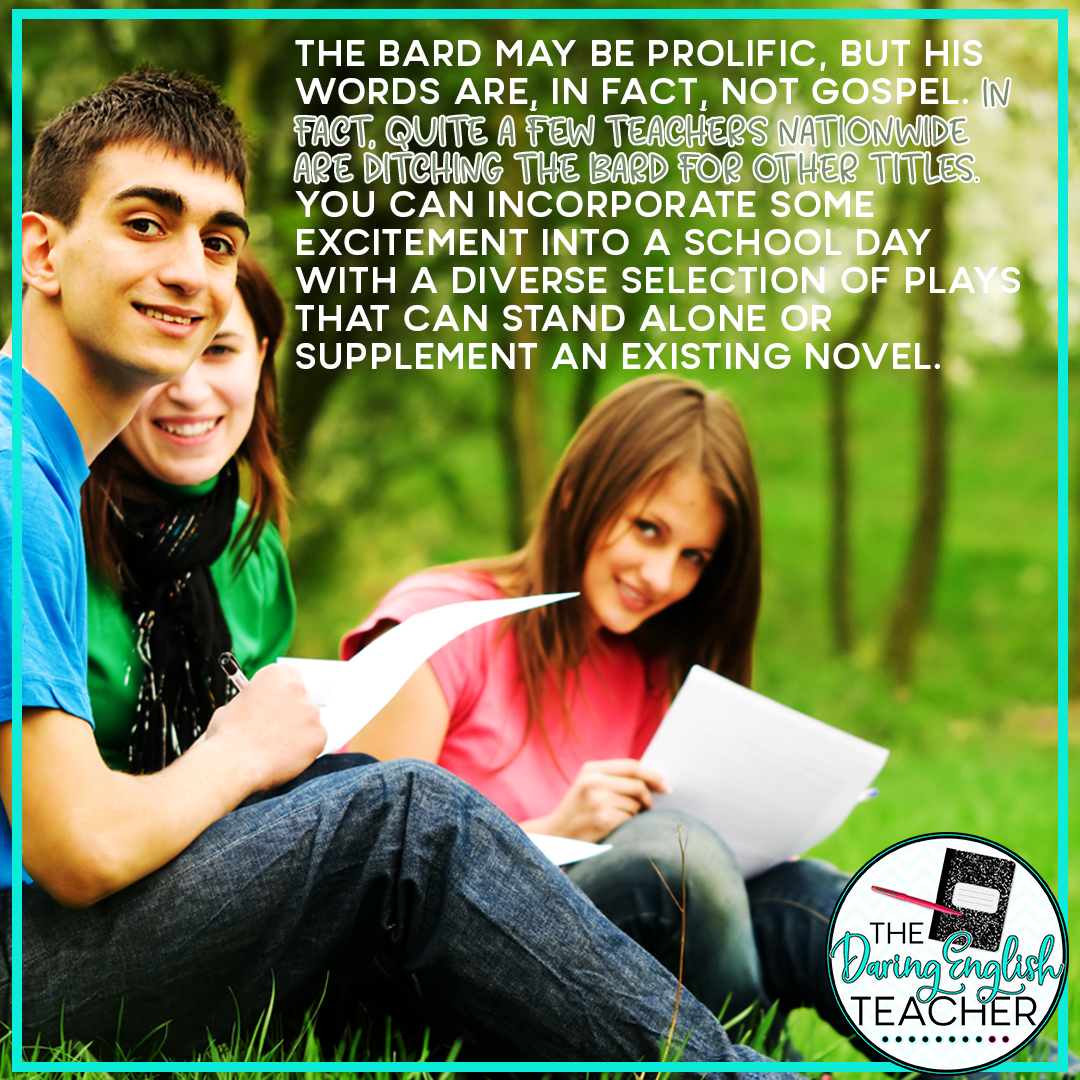Shakespeare, schmakespeare. Or at least, that is what some of our students may think. The Bard may be prolific, but his words are, in fact, not gospel. In fact, quite a few teachers nationwide are ditching the Bard for other titles. You can incorporate some excitement into a school day with a diverse selection of plays that can stand alone or supplement an existing novel unit. Here are five great alternatives to Shakespeare. This post contains affiliate links.
O Beautiful by Theresa Rebeck
O Beautiful packs in most, if not all, of today’s controversial issues, such as racism, homophobia, abortion, gun control, religion, and aggressive patriotism. The show’s surreal nature lends itself well to blending historical issues with modern ones: Historical figures like Alexander Hamilton, Thomas Jefferson, and even Jesus Christ pop up as characters that interact with everyday teens and doting homemakers. O Beautiful’s straightforward style and young characters make it the perfect supplement to any texts dealing political or historical themes, such as To Kill a Mockingbird or Fahrenheit 451.
To Kill A Mockingbird by Harper Lee, adapted by Christopher Sergel
Speaking of To Kill a Mockingbird, it’s no secret that this classic novel has seen many reincarnations throughout the years. However, along with ubiquity comes certain weighty expectations, and sometimes even dread from students. To spice up the predictability associated with this great work, don’t just watch the movie or popcorn read from the book. Using the play adaptation, assign parts, and have your kids bring the story to life right in the classroom! By performing significant scenes from the book, the students will be in the thick of the plot. This will not only foster enthusiasm for reading but a greater understanding of the characters and the forces at work in the novel as well.
The Curious Incident of the Dog and Night-Time by Mark Haddon, adapted by Simon Stephens
Based on Haddon’s award-winning mystery novel of the same name, The Curious Incident of the Dog and Night-Time follows the story of Christopher, a teenage boy on a mission to solve the murder of his neighbor’s dog. What makes the subject material pertinent to the classroom is the fact that Christopher has an autism spectrum disorder. As such, the play revolves around themes to do with Christopher’s unique perspective on the world, such as order vs. chaos, isolation, and identity. This work is significant because it reveals a worldview often overlooked in society and encourages acceptance of those who are “different.” You can pull up professional videos or trailers shot of the production to show students the impact of this representation.
Rosencrantz and Guildenstern Are Dead by Tom Stoppard
Often compared to the likes of Waiting for Godot, Stoppard’s Rosencrantz and Guildenstern Are Dead is regarded as one of the greats in the Theatre of the Absurd. R&G is especially helpful for injecting some life and perspective into any lesson plan revolving around Shakespeare’s Hamlet. Mixing Stoppard’s characteristic intellectual humor with outright slapstick that appeals to all ages, R&G examines many of Hamlet’s key themes, such as the definition of reality and insanity with all the silly spunk of a comedy. Having your class read specific scenes or even watching the film version for homework can be the perfect offset to the somber nature of Shakespeare’s tragedy.
The Crucible by Arthur Miller
Ah, The Crucible. A good companion to The Scarlet Letter, Arthur Miller’s lengthy play perfectly encapsulates sensationalism and paranoia associated with the Salem Witch Trials. Both texts demonstrate the consequences early Americans faced as a result of being overly suspicious of their fellow man, or more often the case, woman. Key scenes from The Crucible are useful to familiarize students with the manic energy of mob mentality and the insidious power of suggestion. With Winona Ryder to make it relevant, showing the film adaptation will capture students’ attention and facilitate discussion of important literary themes that lie therein.





